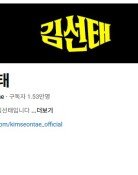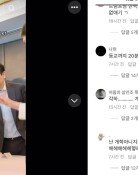Year-end Stock Rally Seen If US Consumption Rises
Year-end Stock Rally Seen If US Consumption Rises
Posted November. 23, 2009 09:11,
Will Korean stocks enjoy a year-end rally ahead of Black Friday in the U.S. this week that kicks off the Christmas shopping season? Black Friday refers to the major seasonal boom among retailers so large that it can change their deficit into a surplus.
Friday will also serve as the first litmus test of whether jobless recovery in consumption is possible. Investors in global stock markets, including Koreas, are wondering to what extent Americans will open up their wallets at years end.
Koreas benchmark stock index KOSPI has declined for two straight months after peaking at an annual high of 1,718.88 Sept. 22. According to the Korea Exchange yesterday, the KOSPI fell 5.72 percent Friday from its annual high, the second-biggest decline among 11 major stock markets in the world behind Japans Nikkei average, which dropped 10.73 percent over the same period.
Last week, Hong Kongs Hang Seng hit its annual high Monday, the U.S. Dow and the Brazilian Bovespa Tuesday, and Russias RTS Wednesday, as these markets are seeing an overall rise.
In contrast, the Korean stock market has backpedaled after peaking well before other markets. Its lackluster performance over the past two months is because of a notably weakening buying spree among foreign investors.
Foreign net buying of Korean shares plummeted from 4.67 trillion won (four billion U.S. dollars) in September to 1.43 trillion won (1.2 billion dollars) last month, down 69.4 percent.
Net purchases of Korean stocks by American and British investors showed a significant decline. American investors, ranking first in cumulative net purchase figures, saw their net buying of Korean stocks fall from 1.04 trillion won (893 million dollars) in September to 349.6 billion won (301 billion dollars) last month. Their British counterparts went from net buying 3.23 trillion won (2.8 billion dollars) to net selling 8.4 billion won (seven million dollars) of Korean stocks.
Foreigners have turned from the Buy Korea binge based on the judgment that Korea could see slowing exports from the fourth quarter amid the strengthening won.
Kim Se-joong, a strategist at Shinyoung Securities in Seoul, said, Korean stocks have slumped notably, with the stock of exporters declining more steeply amid the weakening dollar and strengthening won.
The pessimistic outlook that the Korean economy will slow has added to weaker buying sentiment among investors. Growth of the business survey index has declined for three straight months.
Park Seok-hyeon, a senior researcher at KTB Investment and Securities, said, The slump of the KOSPI since late September has been partly affected by fears that the growth of the business survey index could reverse course to a possible decline in the near future.
The KOSPIs performance, however, improved markedly last week. The index gained 3.1 percent in performing better than global stock markets for the first time in weeks. Notably, foreign investors net purchased domestic stocks worth one trillion won (860 million dollars), which has raised expectations for a year-end rally.
Stock experts say a year-end rally by Korean stocks will depend on U.S. consumption indexes. Employment in the U.S. is unlikely to improve anytime soon, but if consumption recovers before the job market does, this will back the rise in global stock markets over the mid-term.
Black Friday this year will determine to what degree private consumption in the U.S. will recover. Surveys over the past four years suggest that 63.8 percent of Americans shop this day, when retailers start year-end sales. Hence, Black Friday will allow analysts to gauge U.S. consumption sentiment in this years holiday season.
U.S. retail sales in December have increased every year since 2000, peaking at 376.4 billion dollars in 2007. They plunged to 336.4 billion dollars last year, however, after the global financial crisis erupted. Expectations are growing that Americans could rush to spend this year after significantly reducing consumption last year because of pent-up demand.
Since the market has low expectations for year-end consumption in the U.S., if retail sales prove better than expected due to a surge in pent-up demand, global stock markets could gain en masse.
Lee Gyeong-soo, head of investment analysis at Taurus Investment & Securities, said, If American consumers spend more than expected in the year-end shopping season, investors could grow more confident over the possibility of a jobless recovery, adding, If the results are better than projected, stocks could see surprising gains.
Other analysts say, however, that if U.S. retail sales are lackluster, the Korean stock market will continue to remain flat.
Jeong Seung-jae, a researcher at Mirae Asset Securities, said, Korean stocks have showed a lukewarm reaction to positive developments in the U.S., but responded sensitively to negative developments, adding, If U.S. consumer indexes prove worse than expected, the Korean stock market cannot overcome its lackluster performance as shown thus far.
crystal@donga.com jarrett@donga.com







